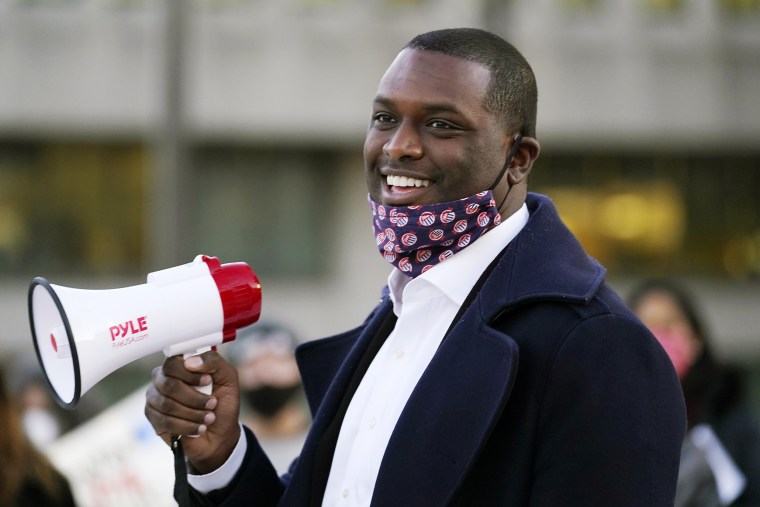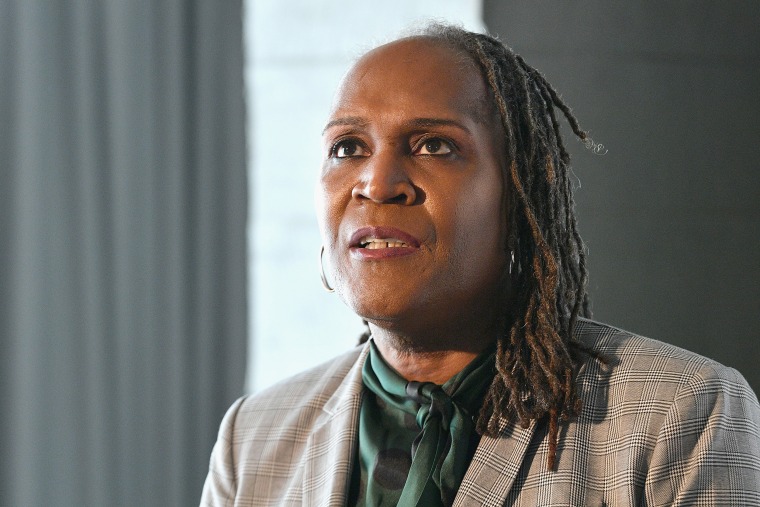Americans have elected more LGBTQ officials than ever before, but to achieve equitable representation, they would have to elect tens of thousands more, according to a new report.
The LGBTQ Victory Institute's "Out for America 2021" report found that the number of lesbian, gay, bisexual, transgender and queer elected officials increased by 17 percent in the past year, bringing the total number nationwide to 986.
But the institute, which supports LGBTQ people running for office, noted that queer people make up 5.6 percent of the U.S. adult population, while holding only 0.19 percent of elected positions.
To have the same proportion of queer people in elected office as there are in the general population, Americans would have to elect 28,116 more officials who are LGBTQ, the report found.
“While LGBTQ elected officials are growing steadily in number, at this pace it will still take decades to come anywhere close to achieving equitable representation in government,” said Annise Parker, president and CEO of the LGBTQ Victory Institute and a former mayor of Houston, according to a press release.
“This lack of representation has enormous consequences, because LGBTQ elected officials are best positioned to defend against anti-LGBTQ legislative attacks and to change the hearts and minds of colleagues in supporting inclusive policies,” she added. “A moonshot effort to increase our numbers is essential to advancing equality at every level of government — and a large part of that is showing LGBTQ people that running for office is our best bet to achieve lasting social change.”
The report found that in the past year, the number of queer officials of color grew more than the number of white queer officials, by 51 percent and 9 percent, respectively. Of LGBTQ officials of color, the number of Black queer elected officials grew the most, from 52 in 2020 to 91 in 2021 — a 75 percent increase.

Still, it found that the diversity of LGBTQ elected officials — like the diversity of elected officials generally — does not reflect the U.S. population.
The number of trans women elected officials also grew significantly, by 71 percent in the last year, from 21 to 36. But trans men saw no increase, with only five serving nationwide.
"Out in America" also looked at trends since the November 2017 version of the report was released. It found that the number of LGBTQ elected officials more than doubled between 2017 and 2021: from 448 to 986 overall.
Two specific demographics have grown the most in the last four years: The number of trans women elected has jumped by 800 percent, from four in 2017 to 36 in 2021, and the number of bisexual elected officials has increased by 787 percent, from eight to 71.
Nearly all states have elected queer officials, save for just one: Mississippi, which has zero known LGBTQ officials serving.
The report also found that most queer elected officials are Democrats, at about 73 percent, while just 3 percent are Republicans.
The 117th Congress, which began in January, was the most racially and ethnically diverse in history. It also includes a record number of LGBTQ lawmakers with a total of 11 — nine House representatives and two senators. Among them were New York Democrats Ritchie Torres and Mondaire Jones, who became the first two gay Black candidates elected to Congress.
Nationwide, more than 300 out LGBTQ candidates won elected office in 2020, of the more than 700 who were on ballots, according to LGBTQ Victory Fund. So far, it is the greatest number of LGBTQ candidates to win elected office in any one year.

